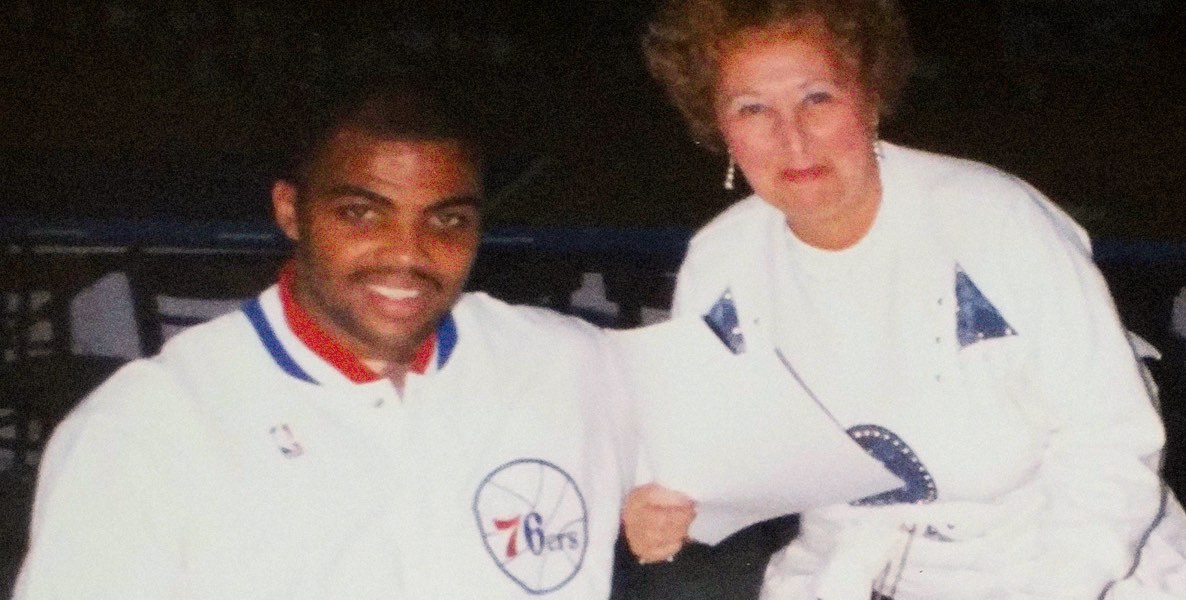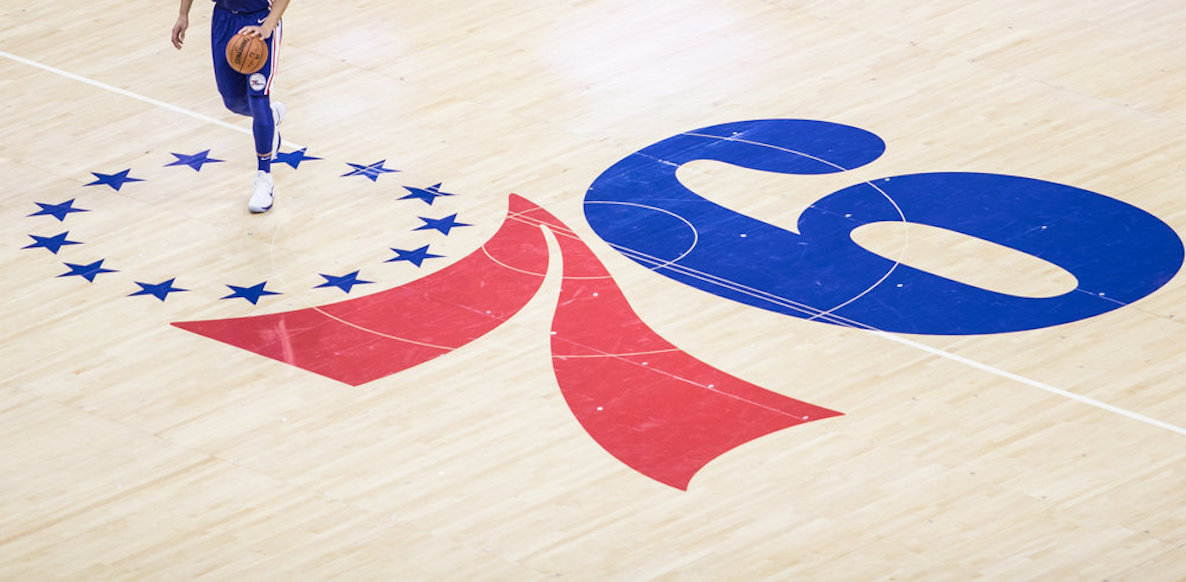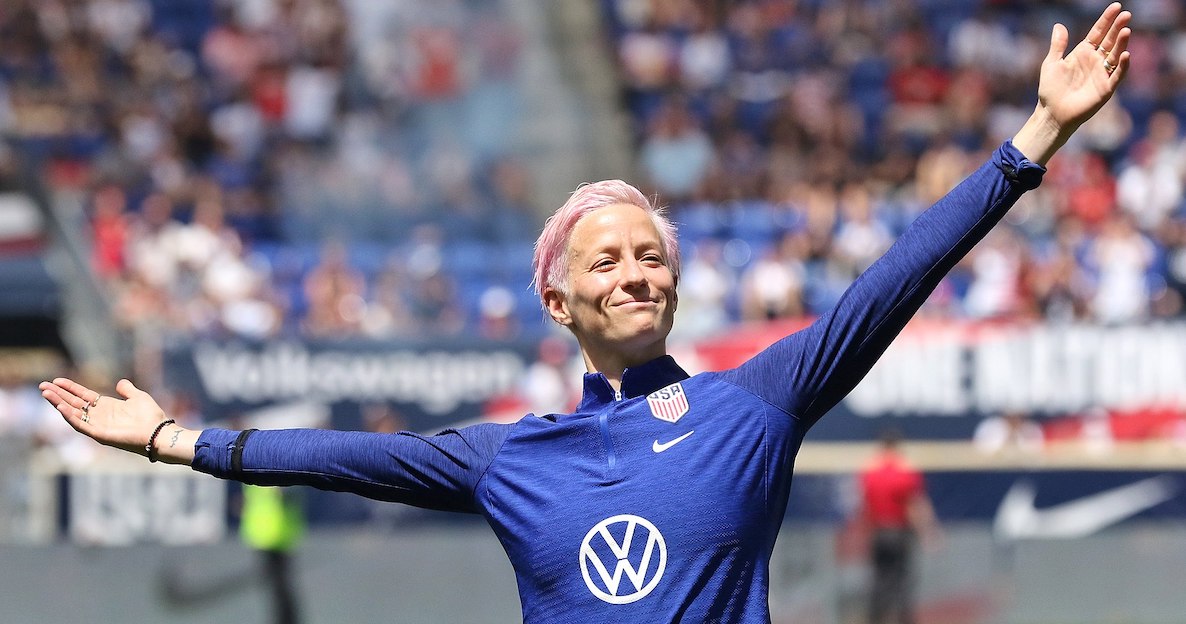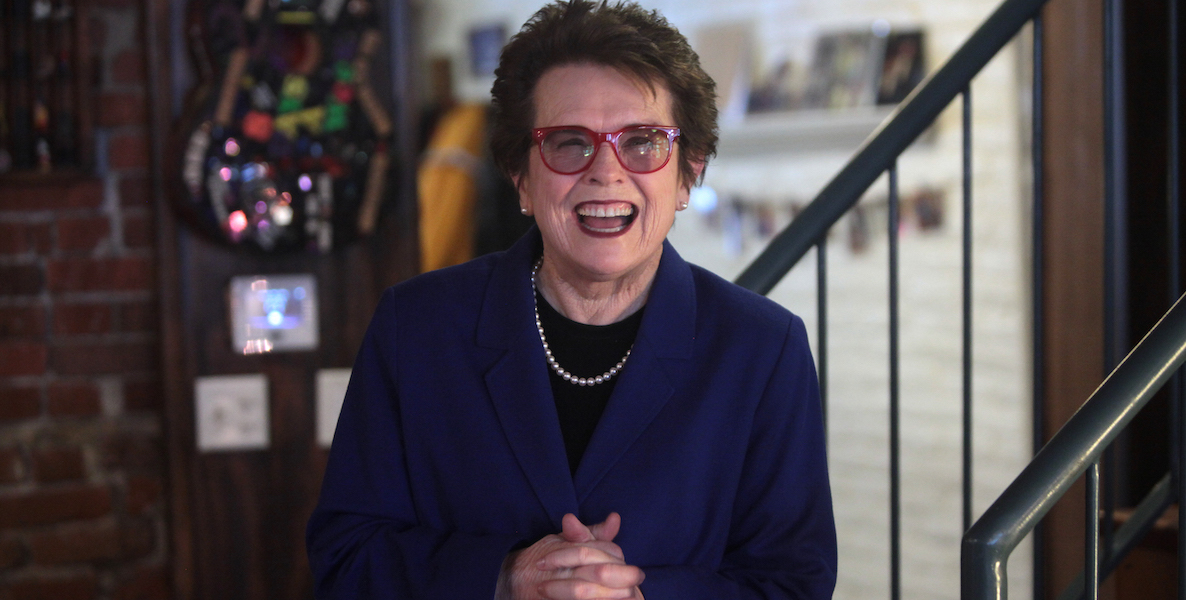Last week, when she bounded onto a stage at St. Joseph’s University to the rousing tune of Philadelphia Freedom, the song her friend Elton John penned for her in the Seventies, there arose a central dilemma that must follow her around through her epic, peripatetic life: How in the hell do you introduce Billie Jean King?

Prefer the audio version of this story? Listen to this article in CitizenCast below:

It’s a conundrum that goes back at least 50 years, when, in a Sports Illustrated feature, the legendary writer Frank Deford captured the challenge: “The public-address announcer introduced Billie Jean’s opponent by cataloguing all her usual accomplishments and titles, and then he brought The Attraction on, his voice suddenly more resonant, trilling, like a nominator at a political convention: ‘And now, her opponent. Ladies and gentlemen, the working symbol for equal rights in America…Mrs.!…Billie!…Jean!…Kinggg!!!!’ And she ran onto the court to a wild standing ovation.”
“I think we need to think about women a little differently,” King said. “When a woman leads, she’s an example for everybody, not just girls. When people say ‘the things she did for women,’ that’s a mistake, because it cuts our marketplace in half.”
So it was last week at St. Joe’s, where, prior to her Freedom’s World Team Tennis match, King took the stage to wild applause from roughly 100 invited guests. Holding a note card with King’s voluminous bio in her hand, moderator Karina LeBlanc tried to shout an intro over the music and the crowd, before finally giving up. King may reside on the left coast, but she’s been a beloved honorary Philadelphian ever since the mid-‘70s, when she brought her vision for World Team Tennis here—a populist, diverse dream for a stodgy country club sport. Back then, she was the player/coach, plying her trade at the now defunct Spectrum, where she’d “hang out in Eddie Snider’s superbox”; most days, she could be found soaking up the exhibits at Independence Hall, feeding her love of history and her unquenchable curiosity. On the court back then, she was a ball of ferocious energy, and the audience at St. Joe’s last week saw firsthand that, off-court, she’s barely lost a step.
![]()
They were there to hear her in conversation with tennis great Venus Williams, NBA assistant basketball coach Lindsey Harding, (who recently left the Sixers for a position with the Sacramento Kings), and Valerie Camillo, president of business operations for the Flyers and the Wells Fargo Center—a powerhouse panel of female talent and accomplishment. But there was only one transcendent star in the room.
How do you characterize Billie Jean King? A great tennis player, sure, but there actually have been better. Deford called her “the most significant athlete of the twentieth century,” but even that feels off, for she transcended sports then, and still does so now. That’s why, in 2009, President Obama bestowed upon her the Medal of Freedom, our highest civilian honor, and it’s why, of the 100 Most Important Americans of the Twentieth Century, Life Magazine included just four athletes: Babe Ruth, Jackie Robinson, Muhammad Ali, and, of course, King.
Now 75, King is the only one left of that storied group, and she’s still a dynamo. The energy she released into that room on City Line Avenue last week was not unlike the change she unleashed on the nation decades ago. Make no mistake: here is someone who changed America.
How did a little girl in Long Beach, California, the daughter of a firefighter and a homemaker, become, arguably, not only the woman of the 20th Century, but a change agent for the ages? How did she find her authentic self?
It wasn’t just her destruction of the sexist former tennis champion Bobby Riggs in the famous Battle of the Sexes match that ushered in a new way to think about gender and equality and merit in American society. Yes, that pop culture event, brought recently to the big screen starring Emma Stone as King, was game-changing, but it also may have overshadowed what continues to be a lifetime of hard work in pursuit of simple justice: The forming of a renegade women’s tennis tour, dedicated to the principle of equal pay for equal work; the establishment of the Women’s Sports Foundation, formed to fight challenges to Title IX—the federal civil rights law in 1972 that prohibited discrimination in education based on sex—and to provide equal opportunity to girls in sports, totaling $80 million in grants to this day; and the founding, just 5 years ago, of the Billie Jean King Leadership Initiative, in which she seeks to “move the needle”—Billie Jean is never stationary, figuratively or literally—by taking her message of gender and racial inclusion to boardrooms and C-suites around the globe. That last goal was on her mind during last week’s panel discussion.
![]()
“We want equal pay for equal work, we want gender equity, we want racial equity, we want equality for people who live with disabilities,” she said, while her fellow panelists—even the esteemed Williams—paid rapt attention. “We want everyone to be included, and we know it’s possible. We’re trying to get CEOs to change. I just know a CEO is not going to do anything when I hear this: ‘I just want quality people.’ I go, Oh, this person is not going to do anything when we leave this room. It’s such a dead giveaway.”
![]()
Yet, King has never stopped challenging her country to live up to its founding ideals, and something in the way she narrows her eyes into steely slits when talking about equality makes you think she never will. Equality isn’t just some concept to her; on the other side of it there’s some little girl, or some African-American, or some disabled child, or some combination of all three, being denied an opportunity.
At St. Joe’s, the discussion had a distinct girl power feel running through it, with lots of talk about how women can summon their “authentic selves” in the workplace. Many of the questions seemed to focus on just how all of the woman on that stage are role models for young women. King, though, a wily practitioner of how to leverage power into change, felt moved to sound a wise note of caution. “I think we need to think about women a little differently,” she said. “When a woman leads, she’s an example for everybody, not just girls. When people say ‘the things she did for women,’ that’s a mistake, because it cuts our marketplace in half.” She went on Rockne-like, to implore those in attendance to access their own voice and see themselves as influencers in their own right.
The energy she released into that room on City Line Avenue last week was not unlike the change she unleashed on the nation decades ago. Make no mistake: here is someone who changed America.
Afterwards, I couldn’t stop thinking about that transition: How does one find and feed that inner voice? How did a little girl in Long Beach, California, the daughter of a firefighter and a homemaker, become, arguably, not only the woman of the 20th Century, but a change agent for the ages? How did she find her authentic self?
“When I was 13, I realized I wanted to change things,” King told me after the program. “I call that my epiphany. When I was 11, I told my mother I was going to be the number one tennis player in the world. She goes, ‘That’s fine, but you have homework.’ But then, when I was 13, I was at the LA Tennis Club and just thinking about my sport. Gosh, I thought, everybody wears white shoes, they wear white socks, they wear white clothes, they play with white balls. Everybody who plays is white. So I said to myself, ‘Where is everybody else?’ I didn’t know what the word platform meant, but if I could be good enough at tennis, I knew I had one. If I was good enough, I could help make the world a better place. It was, like, whoa.”
Whoa is right. Where does that audacious instinct come from?
“I don’t know,” King said, pausing to think. “My parents were very good citizens. My dad was a firefighter. He’s the guy who goes in when everybody else is running out. I used to think about that. We’d have a lot of oil fires in California. When I was 10 and my brother [former major league pitcher] Randy was 5, we stood on our street and saw this big blast go off. My dad was five feet away from a guy who passed away that day. My parents were just good citizens. You know, they paid their taxes, they didn’t believe in debt, they were hardworking. They tried to do great things for Randy and me, but they weren’t the helicopter or the snow plough parent—they didn’t try to clear the way for us to make everything easy peasy for us. The one side where they weren’t good, they were very homophobic, so I went through a hard time with that. But, otherwise, for sports? I wish we could clone my parents. For every child who plays sports I wish we’d clone my parents to watch over them, because they were amazing.”
Funny, isn’t it, how great, impactful lives seem to be willed into existence? That’s the theme of King of the World: Muhammad Ali and the Rise of an American Hero by David Remnick, in which we see a young pugilist imagine a life for himself and then act it out, as though he were starring in his own movie. And it’s what that other trickster of the 20th Century is getting at in Martin Scorsese’s fascinating new documentary, Rolling Thunder Revue: “Life isn’t about finding yourself, or finding anything,” Bob Dylan says. “Life is about creating yourself, and creating things.”
It’s a very American act, the art of self-invention, and Billie Jean King stands as a sturdy testament to it. A little girl in Long Beach, California with a firefighter father intuits something, and spends the rest of her years charging into raging societal flames. To hear her tell it, it’s as if she self-talked herself into existence.
“Being a girl was not the only thing I had to fight,” she once told Deford. “I was brought up to believe in the well-rounded concept, doing lotsa things a little, but not putting yourself on the line. It took me a while before I thought one day: who is it that says we have to be well-rounded? Who decided that? The people who aren’t special at anything, that’s who. When at last I understood that, I could really try to be special.”
That’s a distinctly American type of chutzpah, no? It’s easy in retrospect to see in icons their inevitable rise, but, like Ali, the risks King took to find her authentic self were in no way safe at the time. So when she says today that female leadership isn’t just for girls, it carries weight. Because, in a way, she raised all of us.
That day a decade ago when Obama draped that Medal of Freedom around King’s neck? He told her that watching her in the Seventies had ultimately made him a better father to his two girls. Many of us of a certain age remember where we were when we watched Billie Jean decimate Bobby Riggs. I was with my Dad; he was probably roughly Riggs’ age at the time. Yet, there he was, on the edge of that beat-up ol’ recliner, pulling for Billie Jean, living and dying with each expertly sliced down-the-line backhand. I’m quite sure he hadn’t read Betty Friedan, but he nonetheless knew progress when he saw it. How different would I be today if, on that day, I saw my dad rooting not for the empowered, modern woman, but for the aging chauvinist instead?
Billie Jean King wakes up everyday and stays in bed a long while, reciting what she refers to as her “blessing list.” “The first thing I do in the morning is thank everybody in my life,” she says. “It goes on and on, I could be in bed all day doing this.”
How’s that for irony? A whole bunch of us, after all, men and women alike, should actually be waking up each morning and thanking her.
Photo by Gage Skidmore via Flickr






